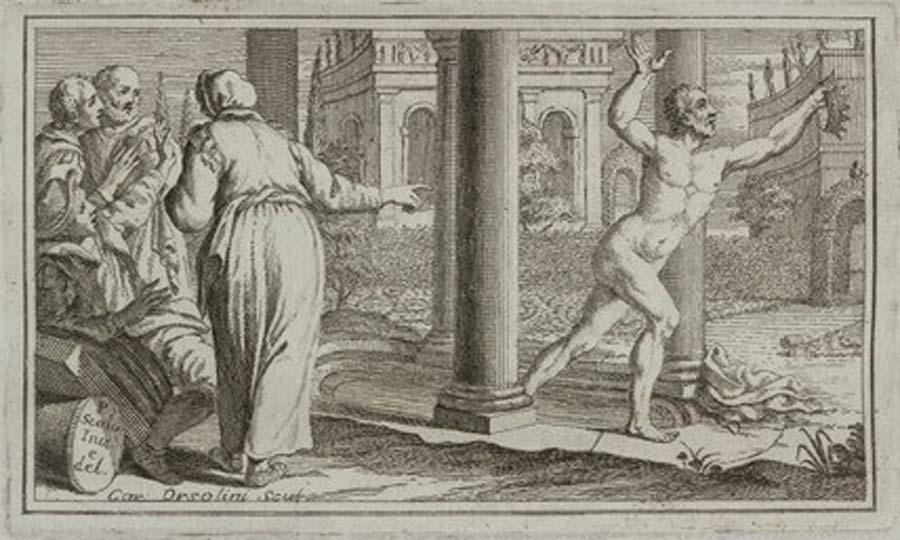
The Tomb of Archimedes, Genius of Syracuse, Concealed by a Naiad
First century AD Roman statesman and orator, Cicero’s claim that he had found Archimedes’ tomb may be refuted. In Greek mythology Ciane is a freshwater nymph, who tried to save Persephone from being abducted by Hades, god of the underworld. As punishment he turned her into a stream. Does the Ciane river near the ancient Sicilian city of Syracuse, point to the location of the tomb of its most famous son?

Thoughtful Archimedes by Domenico Fetti (1620) (Public Domain)
Cicero on a Quest
One may not have faith in the words of Marcus Tullius Cicero - who has been harassing students of Latin with the obligatory translations of 'De Divinatione' or, even worse, 'De natura Deorum' at the desks of the Lyceum - when he seriously proclaims: "When I was a quaestor we discovered his tomb, all surrounded and covered with brambles and prunes, of which the Syracusans were unaware of the existence, indeed they ruled out that there was... On the top of the sphere was placed a sphere with a cylinder...". (Tusculanae Disputationes, V, 23). To whom did the mysterious ‘sepulcher, all surrounded and covered with brambles and prunes’ belong?
After the death of Silla (78 BC), Cicero began his political career by presenting himself as a candidate for the post of Chief of Police in charge of assisting the proconsuls in some provinces. He was sent to Sicily and took advantage of the opportunity to search for the tomb of the man who was considered the greatest scientist of antiquity: Archimedes (287 BC - 212 BC).
Eureka: The Archimedes Principle
There is a well-known legend that the Archimedes principle -named after the scientist from Syracuse :"A body immersed in a fluid receives a push from the bottom up equal to the mass of the fluid moved," was discovered while he was lying in a bathtub and that, excited by the discovery, he ran naked in the street shouting the famous 'Eureka!', or 'I found!'.

Archimedes' Principle' or the 'Principle of Buoyancy'. Vignette from the title of Italian page "Historical and critical information about the life, inventions and writings of Archimedes of Syracuse" by Count Giammaria Mazzuchelli (1707-1765), published in Brescia, Italy in 1737. (Public Domain)
True or false, this episode highlights the vivacity of genius and whimsy of the great mathematician whose life is an enigma, except for the fact that his father was the astronomer Phidias and that he, in his youth, would have had the opportunity to meet the disciples of Euclid while he was staying in Alexandria, Egypt. But the genius of Archimedes manifests itself precociously in many ways, even in the military field, as the tyrant Gerone II was well intuited when he publicly affirmed: "Nihil non dicendi Archimedi credam!", that is: "I do not believe in anything that has not been said by Archimedes!”
- Cicero and the Forgotten Tomb of Archimedes
- Archimedes: An Ancient Greek Genius Ahead of His Time
- Hannibal of Carthage: Military Commander and Greatest Enemy of Rome
Archimedes’ Iron Claw
Gerone passed on to a better life in 216 BC, but his successor Geronimo was in favor of Hannibal instead of Rome. When he also departed his 'valley of tears', the city of Syracuse decided to remain allied with Carthage, while the Second Punic War (218-201 BC) was still in progress.




